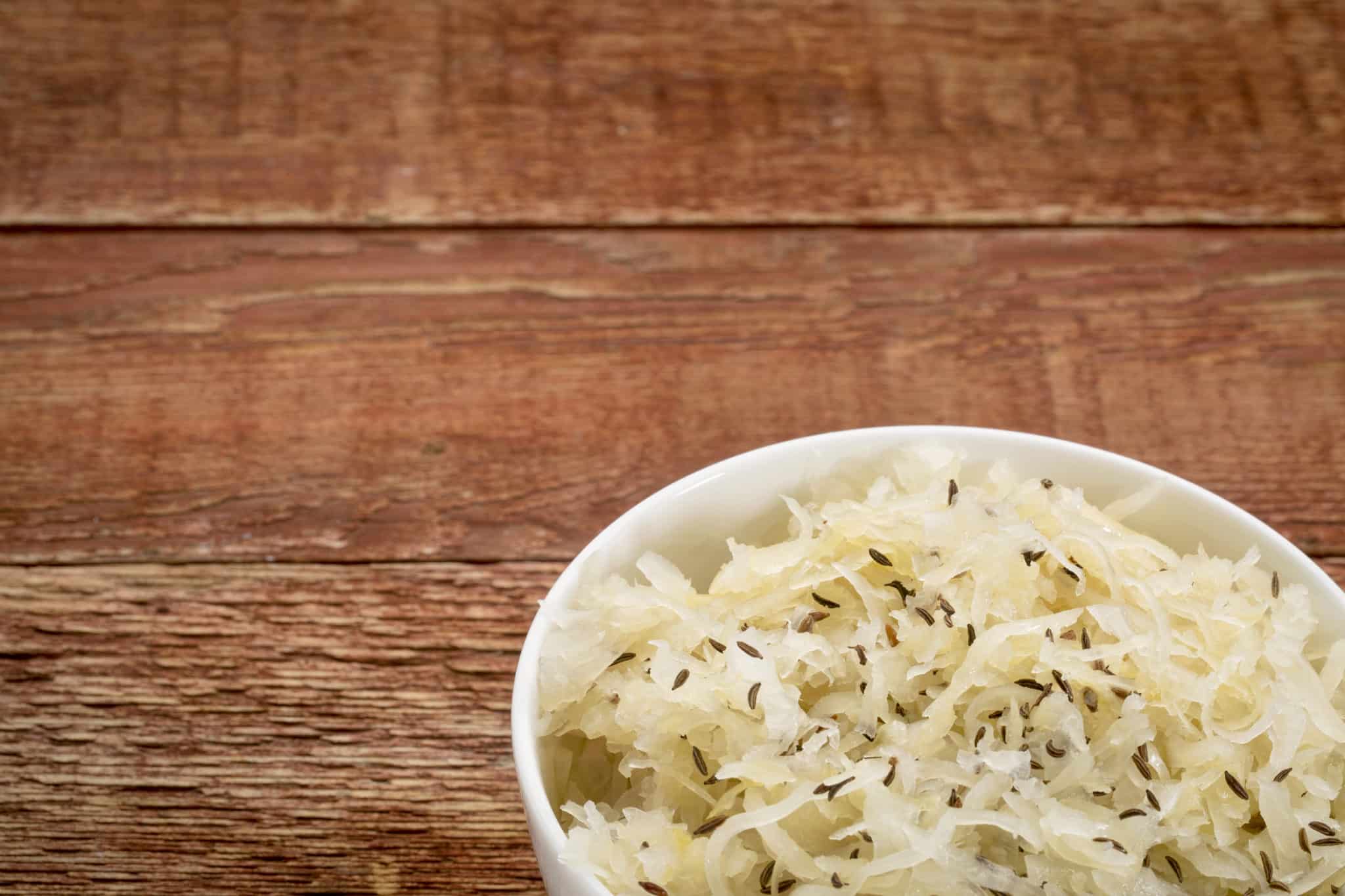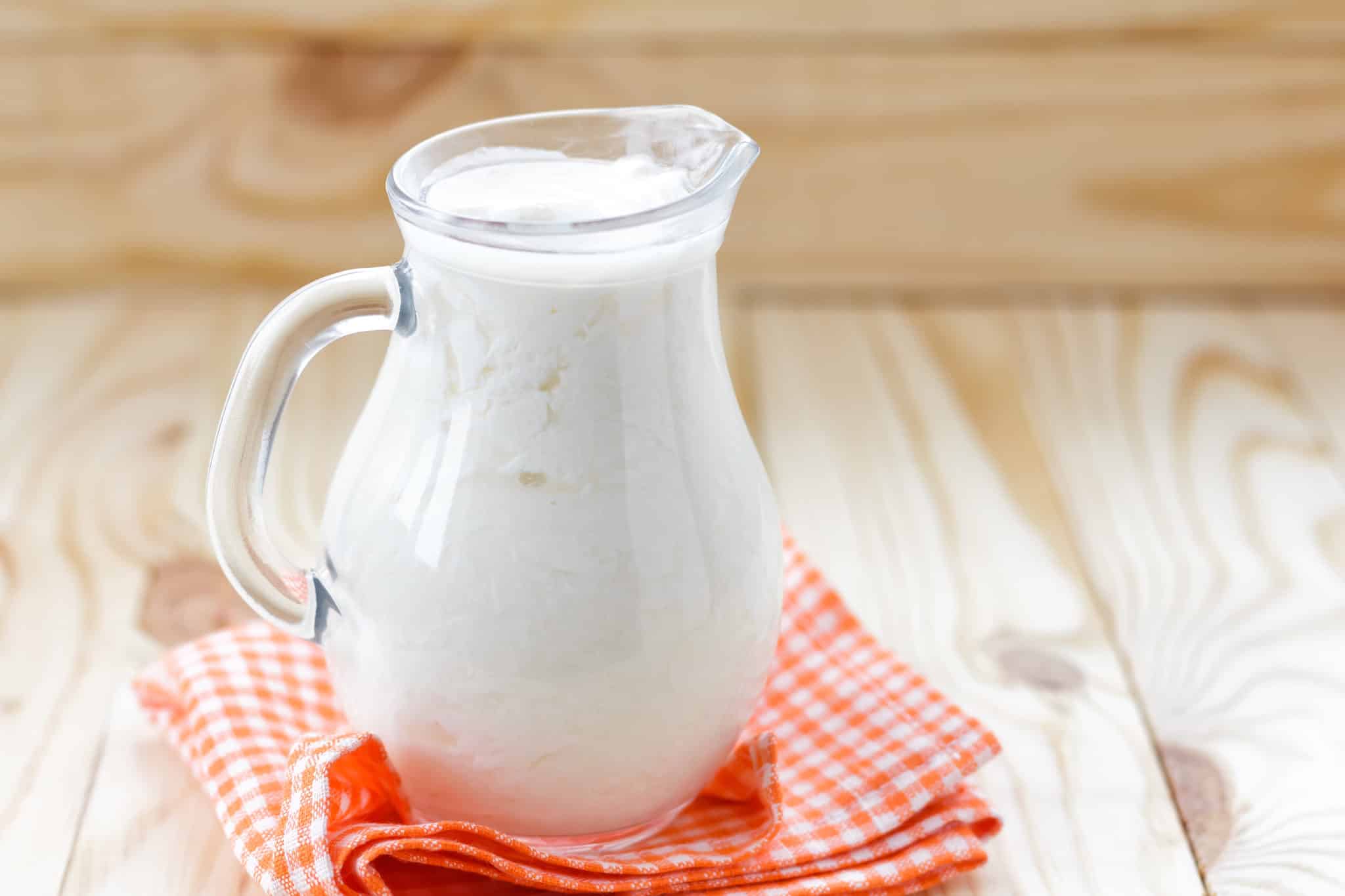This post contains affiliate links. Please see our disclosure policy.
If you follow health food trends, then this isn’t the first time you’ve heard of fermented foods. With more and more research uncovering the necessity of gut health, it’s becoming increasingly apparent that the food we eat has a huge impact on our overall wellbeing.
Yet despite the sudden exposure of naturally fermented foods, they’ve actually been around for thousands of years being used for their health-promoting properties.
To understand how you can take advantage of fermented foods in your diet, it’s important to understand the process and the foods most beneficial in uncovering the healing powers fermented foods have on the body.
What Are Fermented Foods?
Fermented foods, or “live” foods, are the result of foods that have undergone the process of lactofermentation, in which lactic acid is created as a result of natural bacteria feeding on the food’s sugar and starch.
During this process, advantageous enzymes, b-vitamins, Omega-3 fatty acids and many types of probiotics are produced due to the preservation of the food and its nutrients. The digestive system responds well to fermented foods because of its incredibly healthful qualities.
Why Have They Dissipated From Our Diets?
Though cultures around the world have been incorporating fermented foods into their daily diets for quite some time—think sauerkraut in Germany and kimchi in Korea—the desire for beneficial probiotics and enzymes in the typical diet has decreased globally in the last few decades as a result of the popular western diet, which includes pasteurized dairy milk and yogurt instead of raw, and vinegar-based vegetables like pickles instead of fermented ones.
In short, we are settling for a “dead-on-arrival” food reservoir that no longer provides us with one of the most wonderful parts of food: live bacteria our gut needs for optimum health.
What Are The Benefits of Fermented Foods?
They’re Sustainable
One of the best things about fermentation is that it is very efficient, requiring little energy in the process, while also boosting foods’ shelf life and lessening the need to be preserved in the refrigerator.
They Fight Diseases By Improving Gut Health
Your gut is a powerful system, making up nearly 80 percent of your immune system. So when you treat it poorly with bad bacteria, you’re only increasing your chances of harming your short and long-term health.
However, fermented foods, complete with good bacteria work to keep nasty sicknesses and diseases at bay.
They’re Cost-Effective
While many people associate eating healthy with overspending, that is not always the case, especially when it comes to fermented foods.
Fermented foods have the ability to last for months when done at home, and even longer if bought from the store. Furthermore, a little goes a long way, as they have significantly more probiotics than a supplement offers.
They’re Alive With Healthy Goodness
Unlike “dead” foods, fermented foods immediately work to balance out your gut bacteria and stomach acids by giving off enzymes that help your digestive system to both absorb more nutrients as well as extract them.
You’ll benefit with a balanced gut, where inflammation, constipation, acid reflux and other digestive issues are slim to none.
They’re a Natural Detoxifier
Skip the latest detox fad and instead reach for fermented foods when you’ll looking to clear out and re-boot your system.
The good bacteria in fermented foods are able to grab onto toxins in your body such as mercury, aluminum, lead and more and rid them from your body.
They Can Clear Up Acne
As your body gets rids of toxins, your skin can also be affected in a beneficial way.
They Can Help Promote Weight Loss
Due to the their ability to detoxify, reduce inflammation and increase good gut flora, fermented foods can also be used to lose weight. In addition, they can also lessen sugar and processed food cravings.
They Balance The Bodies’ pH Level
Many of us consume an over-abundance of acidic foods, thus lowering our body’s pH level. Fermented foods, on the other hand, are alkaline forming in the body and thus can restore your pH to normal levels.
The Difference Between Pickled & Fermented
Often, when people start to think about fermented foods, there is an overlap in their mind with pickled foods.
So what’s the difference?
Well, to start pickled food are not necessarily fermented and fermented foods are not necessarily pickled. Pickled foods are made often with vinegar or another acidic ingredient and involve the use of heat.
Fermented foods don’t need to addition of acid, as the fermenting occurs as a result of the food’s natural sugars and naturally present bacteria. Pickling does extend the shelf life of foods, but it does result in the same probiotic and enzymatic makeup that fermented foods do.
How To Get More Fermented Foods Into Your Diet
It’s one thing to learn about healthy habits, but to execute them can often feel like an overwhelming process we just don’t have time or energy for. But it doesn’t have to be that way with fermented foods.
To improve your gut health, simply begin by integrating them into your diet by adding just a spoonful of kefir into your breakfast smoothie, tossing fermented vegetables like onions into your lunchtime salads and adding fermented beets as a side dish at dinner.
If you’re up for it, you can even make it a fun and informative DIY experience and try fermenting at home.
Get Acquainted With The Staples
Dairy And Dairy Alternatives: Kefir, a fermented milk beverage boasting a taste similar to that of yogurt, is rich in calcium and probiotics.
Also try: Fermented cheeses, yogurts, sour cream, coconut milk
Vegetables: Sauerkraut, which is made from cabbage and salt, provides the body with a good dose of fiber and probiotics.
Also try: fermented beets, tomatoes, onions, garlic, kimchi (Korean-style cabbage)
Drinks: Kombucha is a zesty, fizzy, non-caffeinated beverage that is created from fermenting sweetened tea with the kombucha “mushroom” culture chock-full of a variety of bacteria and yeasts.
Apple cider vinegar is also a fermented beverage boasting many health benefits. Start with a couple teaspoons of ACV diluted in an eight-ounce glass of water and work your way up to 1-2 tablespoons first thing in the morning to boost your health.
Also try: Rejuvelac (made from sprouted grain and pure water)
Condiments: Salsa is already good for you with nutrient-rich vegetables, but by fermenting it, you boost the nutrients that these individual ingredients have, increasing your body’s absorption process of vitamins and minerals.
Also try: Fermented chutney, ketchup, relish, mayonnaise






